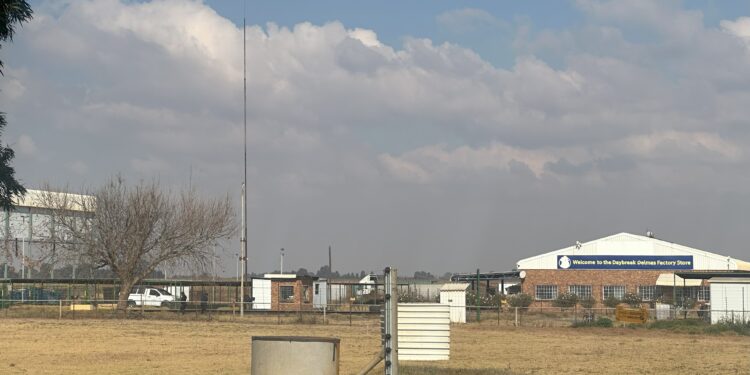Delmas– On 11 July, Daybreak Foods announced to its workers that it has finally paid off the employees’ June wages after one of its service providers, Altron, refused to disperse salaries when Daybreak found itself in financial woes and unable to meet its financial obligations.
“Due to the manual processing of the salaries, employees will not receive payslips as usual. The payslips for June salaries will be made available to employees once the IT systems issue has been resolved,” said senior business rescue practitioner, Tebogo Maoto. “The Company will deal with all salary queries and discrepancies, once the IT systems are operational and the payslips have been generated.”
The Highveld Chronicle interviewed workers to find out how they had been coping without their salaries. Joyce Jele, a single mother, said: “I don’t know what to do. I’m struggling to provide for my kids. We’ve gone months without pay, and I’m worried about losing everything, including my insurance.”
Another employee, Josephine Lindiwe Mdluli (52), has been with Daybreak since 2013. “I’ve dedicated my life to working at Daybreak, but now I’m struggling to put food on the table and pay my bills. It’s heartbreaking to think that my retirement security is now a distant dream,” she said.
Carol Tswaledi, a mother of two, echoed a similar sentiment of a grim reality. “I’m living in fear of being homeless. My landlord is threatening to evict us if I don’t pay rent this month. It’s a constant struggle, and I feel like I’m running out of options,” she explained, showing the harsh impact of the salary delays on her family.
‘What Altron is demanding is illegal’
The Southern African Textile and Clothing Workers Union (SACTWU) and the Agricultural Food and Allied Democratic Workers Union (AFADWU) affiliated to the Congression of South African Trade Unions (COSATU), the largest union federation in the country, have expressed concern over the ongoing financial woes at Daybreak and have particularly called out Altron.
“It is important to stress that what Altron is demanding is illegal, because the Business Rescue Practitioner (BRB) cannot favour one creditor above all others,” said COSATU’s national spokesperson, Zanele Sabela.
“Due to this, the BRP is forced to approach the court to either force Altron to pay the salaries or hand over the database, so the BRP can contract another payroll company to pay the workers. Altron is not prepared to pay the workers or hand over the database until it is paid monies owed to it,” added Sabela.
We sent a media inquiry to Altron to comment on the concerns COSATU raised and about its ongoing challenges with Daybreak.
“Altron Digital Business (ADB) confirms that while payments have been received, they do not meet the terms of the settlement agreement concluded earlier this year to address Daybreak Foods long term outstanding debt,” the company told Highveld Chronicle.
“The issue of non-payment has been a persistent challenge for over twelve months. Despite this, ADB continued providing services and working on efforts to identify a viable solution. Daybreak Food’s continuous non-adherence to the agreed terms of the settlement agreement has left ADB with no alternative but to suspend services. ADB is in active discussions with the appointed business rescue practitioner regarding post business rescue commencement services.”
Daybreak Foods entered into business rescue in May after running out of money to pay its workers and buy feed. This led to the Society for Prevention of Cruelty to Animals having to put down 350,000 starving chicks due to neglect.
In response, the Public Investment Corporation (PIC), which owns 100% of Daybreak’s shares for the Government Employees Pension Fund and other state funds, injected R76 million to help pay workers and secure the company’s future.
Daybreak Foods had failed to disperse the workers’ June wages after Altron, the company handling payroll, refused to process the salaries until it received payment for money owed by Daybreak.
The BRP is now seeking legal action to either compel Altron to disburse the salaries or to obtain access to the payroll database to find another service provider willing to pay the workers. Meanwhile, the PIC has provided an additional R150 million last week to ensure that workers receive their due salaries.
























